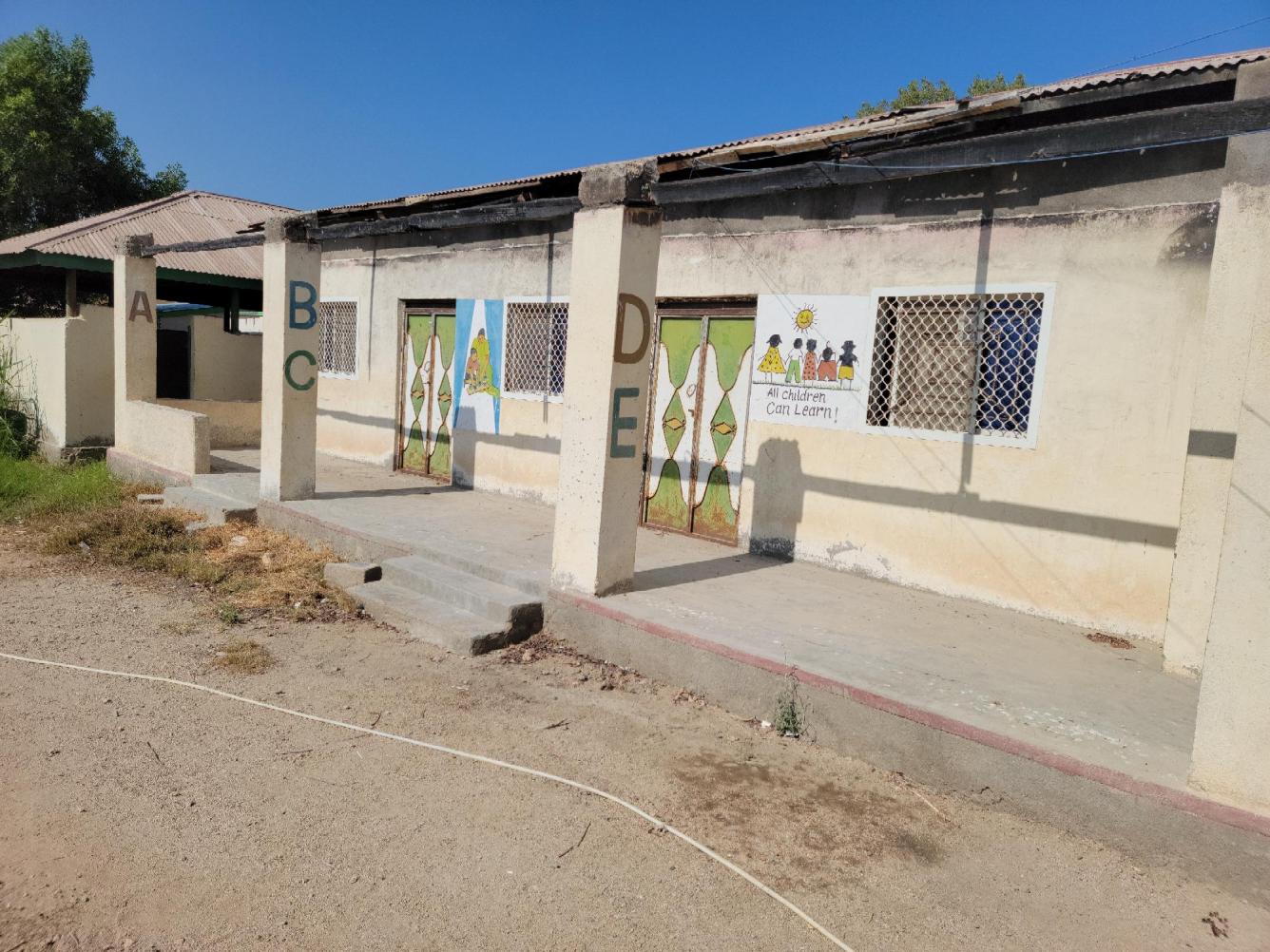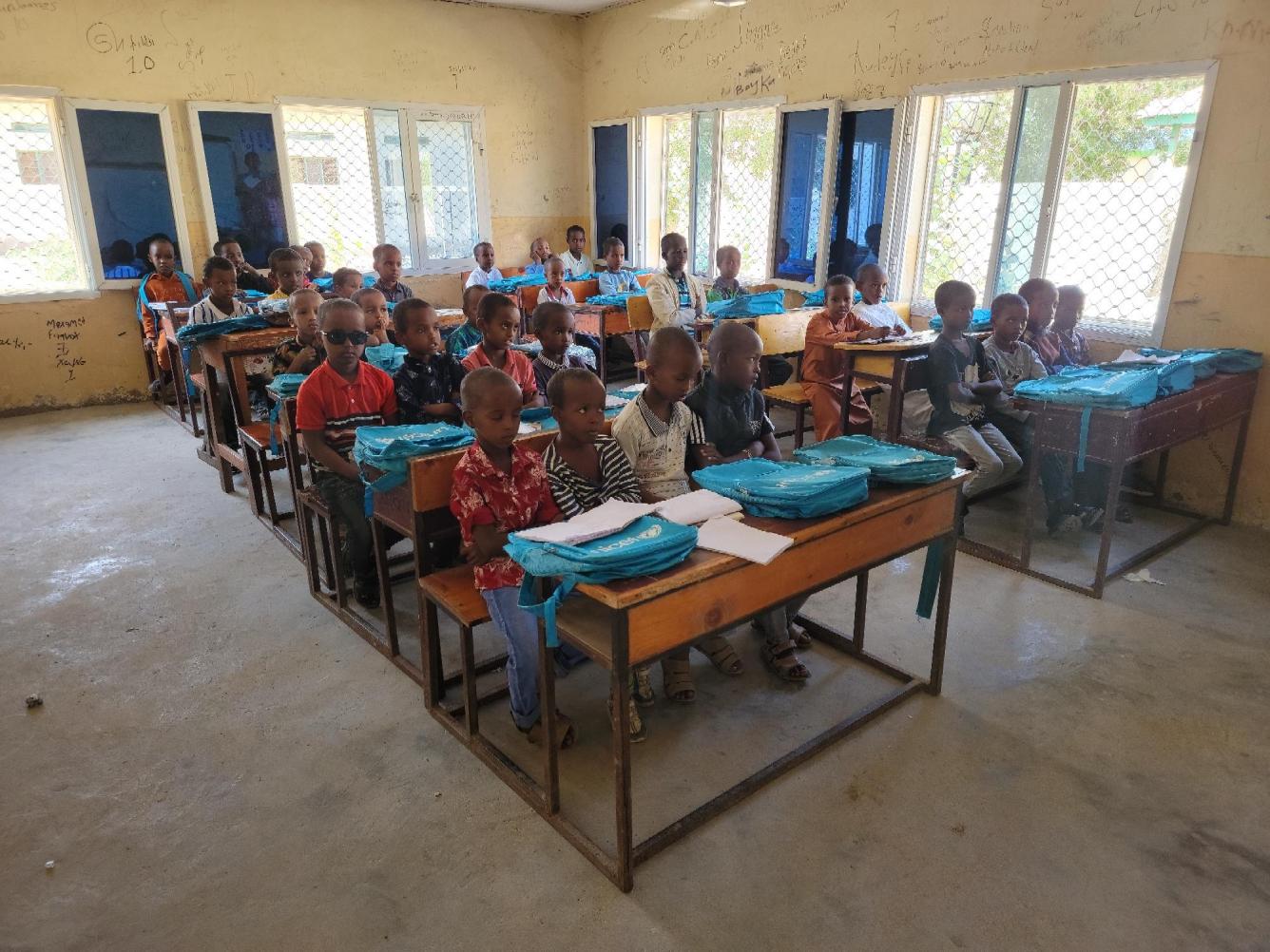By Victor Chinyama and Jamal Abdi Sarman
Berbera, Somaliland. When the classroom went up in flames three years ago, school principal Abdelhaziz Ahmed feared the worst. This was the only classroom at the school catering to the needs of children with disability and here he was seeing the hopes and dreams of 25 children go up in smoke.
Omar Bin Khatab Lower Primary School, with a student population of 550, was among a handful of schools in Somaliland offering learning for children with disability. In a society where disability is treated with stigma, the school provided sanctuary for children from pervasive discrimination and an opportunity to learn.
Rather than send the children away, Abdelhaziz decided to integrate them into the mainstream school. This was not an easy decision as not all his teachers were special needs teachers and he worried about the children being accepted by the other students.
“I could not leave the children alone,” says Abdelhaziz. “They had no other support. This was their only dedicated facility.”
The integration was not easy. The children would be taunted by the other students and called names.

The power of inclusive education
About a year later, the school was among 65 in Somaliland selected by the Ministry of Education to participate in UNDaunted, a UNICEF program funded by the Government of Canada to support the education of girls with disability.
Within a year and half, the program had trained teachers in disability-friendly teaching methods, constructed toilets and sanitary facilities for girls with disability, provided school bags and other teaching and learning materials, and provided wheelbarrows and bins for waste management. Significantly, according to Abdelhaziz, the program had helped to reduce stigma towards children with disability. The trained teachers are given a monthly allowance of US$100.
“Since the program started, there has been a reduction in the name-calling and the academic performance of the children has improved,” he says.
The program has benefitted sudents like Abdiweli Hamze, 11. He was born in a family of 12 and lives with his grandmother. His siblings live in another town 60 kilometers away.
“The toilets now are better than they used to be,” he says. “They are newer, cleaner, and have running water. I am able to use it more easily because the floor is concrete.”
Abdiweli likes English, Science, Arabic, Religious Education and English and says he wants to be a doctor.

Overcoming stigma, one school at the time
Shacban Abdilahi Elmi is a programmanager at the Youth Volunteers Development and Environmental Conservation (YOVENCO), a youth-led non-governmental organization which has partnered with UNICEF to support school children with disability in Somaliland. He says the UNDaunted program reaches 800 children in 65 schools, the majority of whom have severe physical and intellectual disabilities.
“One of our biggest challenges is the lack of schools for children with special needs, especially children who need devices,” he says. “Coupled with poverty and negative cultural attitudes, we believe there are many more children who are not enrolled in school and therefore not being reached.”
All 65 schools supported by the UNDaunted program are provided with teaching and learning materials and each has a teacher trained in special needs. The US$100 monthly allowance acts as an incentive for the teachers. The program also provides food rations like rice and dates to families to encourage them to enroll their children.
Shacban says before the UNDaunted program, teachers were unable to identify children with disability. After the training, teachers are able to name the number of children with disability in their school and have the data included in the Education Management Information System.
The program has also caught the attention of the city of Berbera which has conducted a survey of households with children with disability and included them in the city’s budgetary allocations for 2022.
###
In partnership with the Government of Canada, UNICEF Canada supports the education of girls with disabilities in 250 schools in Somalia through the UNDaunted program.





